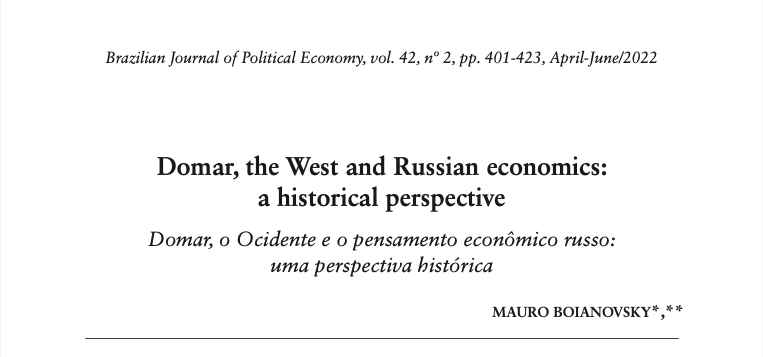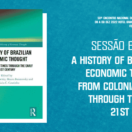The article discusses Evsey Domar's role as a link between economic thought in the West and in Russia, including her influence on some Brazilian economists. The Russian heritage he brought to the United States from Harbin (Manchuria) consisted of an interest in socialism and Russian history. He paid close attention to the Varga controversy in 1947 in the USSR. The rediscovery of Feldman's (1928) growth model by Domar in 1957 caught the attention of both Western and Soviet economists. Soviet economic development was also discussed in his interpretation of Preobrazhensky's (1926) approach to the interaction between the agricultural and industrial sectors. Domar's seminal 1966 article on producer cooperatives drew attention to Tugan-Baranovsky's 1915 book on the subject. Domar's interest in history resulted in his 1970s hypothesis about the origins of Russian serfdom and slavery in North and South America. Soviet economists paid some attention to Domar's growth models, especially those involving depreciation and the temporal structure of capital goods.
the article of teacher Mauro can be obtained via the link below.


